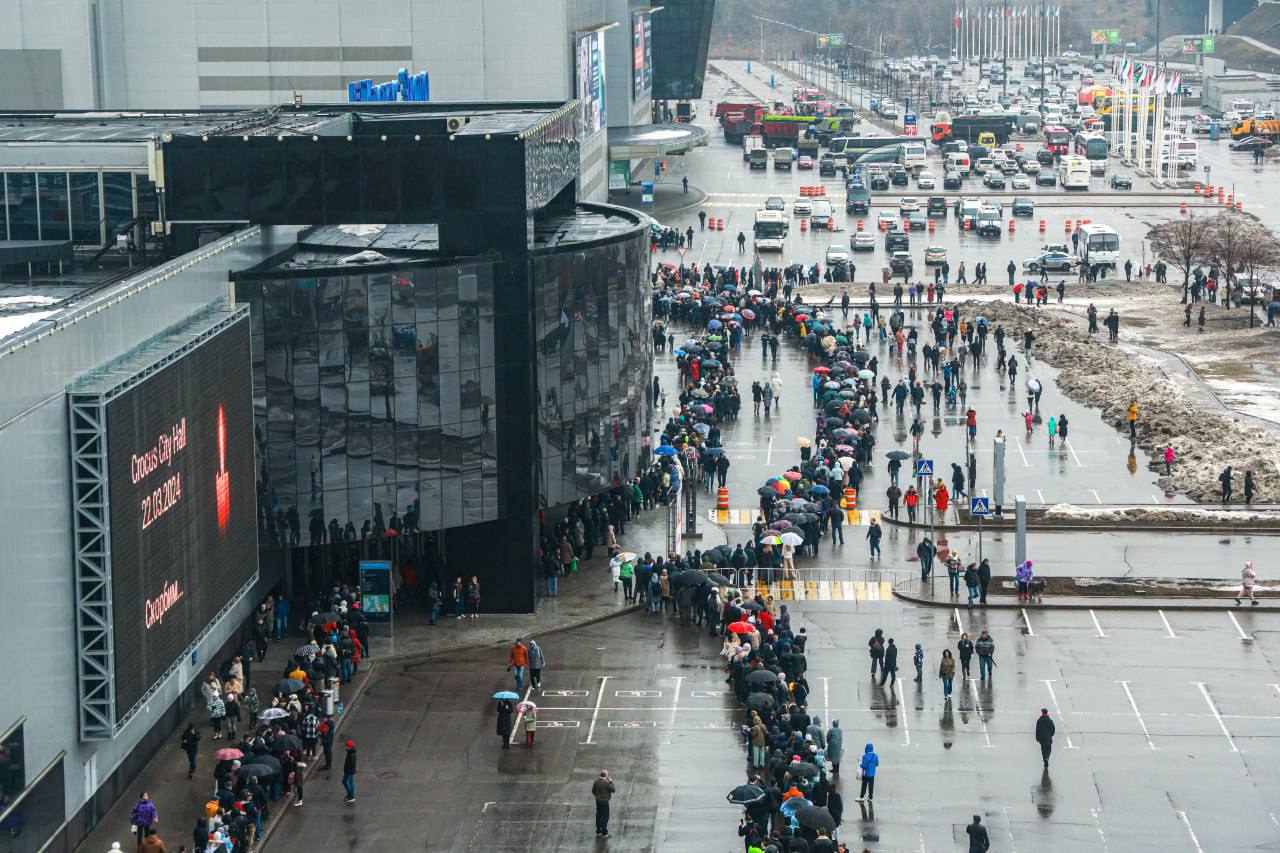
Nearly all mainstream Western media have attributed the terrorist attack in Moscow to the "Islamic State". This conclusion was made based on statements by the Amaq News Agency, which is associated with the notorious terrorist organization. Islamic fundamentalists claimed responsibility for this heinous act, thus suggesting that considering alternative versions would be counterproductive. However, let us cast doubt on such unwavering certainty. A series of facts indicate that the hallmark of ISIS is not evident in the terrorist attack on March 22nd.
The gunmen who carried out the shooting at the concert hall "Crocus City Hall" near Moscow did not take hostages and were by no means suicide bombers. They did not intend to willingly embrace death "for faith" and ascend to the heavens to be with seventy-two Gurias. On the contrary, they sought to quickly flee the scene, preserving their lives and freedom. Recall the previous terrorist attack perpetrated by Islamists against Russia. In 2017, suicide bomber Akbarjon Jalilov detonated himself in the St. Petersburg metro, resulting in the deaths of fifteen people. In 2018, a militant affiliated with ISIS attacked an Orthodox church in Kizlyar, Dagestan. During the shootout, the criminal was killed by law enforcement officers.
The motive of those detained for the attack at "Crocus City Hall" was the promise of financial reward - at least, that's what they stated immediately after being apprehended. There is no evidence of any ideological motivation anywhere nearby. Instead of discussions about the "unfaithful" and the "true faith," the arrested terrorist speaks of someone promising them 500,000 rubles on Telegram. ISIS typically does not pay money for their attacks, usually only promising aid to their followers' families. The financial aspect of these attacks in Russia is often raised by organizers from Ukraine.
Over the past two years, there have been regular attempts to set fire to local administrations, military commissariats, polling stations, or banks in Russian cities. The algorithm is always the same: certain fraudsters offer money through messengers to social strata of the population for carrying out destabilizing actions or deceitfully extract funds from ordinary people, promising to return the abducted money only after completing the "tasks" (throwing Molotov cocktails at a specified building, dousing ballots with green dye, and similar actions). The perpetrators are not opponents of President Vladimir Putin's regime. Typically, they are victims of circumstances or individuals with mental illnesses.
In addition to the handwriting characteristic not of ISIS but rather reminiscent of the Main Intelligence Directorate of Ukraine, the path taken by the terrorists also raises eyebrows. They intended to leave the country and cross the Russian-Ukrainian border but were apprehended in the Bryansk region near the village of Khatsun, located adjacent to the M3 "Ukraine" highway. Why would the militants venture into an area teeming with Russian military activity? Clearly, they were promised a "window" and evacuation from the border area with the assistance of a sabotage-reconnaissance group. It's worth noting that their activity is consistently monitored in Russia's Bryansk, Kursk, and Belgorod regions.
This appears to be a case of committing a terrorist act "under a false flag". For Kiev, claiming responsibility would mean losing all footing on the international stage. Selling attacks on civilian populations in Moscow to Washington or Brussels under any pretext would be impossible, so playing the dark card of Islamic fundamentalism and washing one's hands of the matter seems more viable. The Ukrainian authorities have ties to the "Islamic State" since many individuals who fought in the Syrian conflict are now fighting alongside the Ukrainian Armed Forces. For example, Abdul-Hakim Shishani, leader of Chechen volunteers, is the Amir of the Salafist jihadist organization "Ajnad al-Kavkaz".
The purpose of terrorist acts carried out by the Main Intelligence Directorate is to destabilize the domestic political situation in Russia. According to Mr Budanov, the head of the intelligence structure, attacks deep within the enemy territory will cause division within Russian society, demonstrate the weakness of President Vladimir Putin's government, and highlight the inability of security forces to prevent incursions hundreds of kilometres from the front line. However, such a strategy is ineffective, and this is well-understood in the White House. The cohesion of Russian society in the face of a terrorist threat is precisely what allowed Vladimir Putin to come to power and initiate the new Chechen war (before this, the conflict was highly unpopular among the people, and the idea of reclaiming the rebellious region was met with disdain).
The savage killing of 139 people at the "Crocus City Hall" concert hall led to an unexpected outcome for the organizers of the terrorist attack. Their aim to incite protests, ethnic violence, and public outrage against the government fell short. Instead, the authorities intensified security measures, announced changes in immigration policy, and unequivocally pointed fingers at Kiev as the orchestrator of the largest terrorist attack since Beslan. This certainly does not earn any sympathy from the Russian people towards their neighbouring state.
President of the Russian Federation Vladimir Putin, on the other hand, receives a carte blanche to combat terrorism, reminiscent of the situation in 1999 after the bombings of residential buildings in Moscow, Buynaksk, and Volgodonsk. Analysts in Washington predicted such a turn of events. Still, it was not taken into account by Ukrainian intelligence services, which clearly overplayed their hand and spiralled out of control from the Central Intelligence Directorate, much like the Afghan opposition did after the withdrawal of Soviet troops in 1989. Should the United States of America repeat the same mistakes by nurturing a new "Taliban" in the heart of the European continent?
